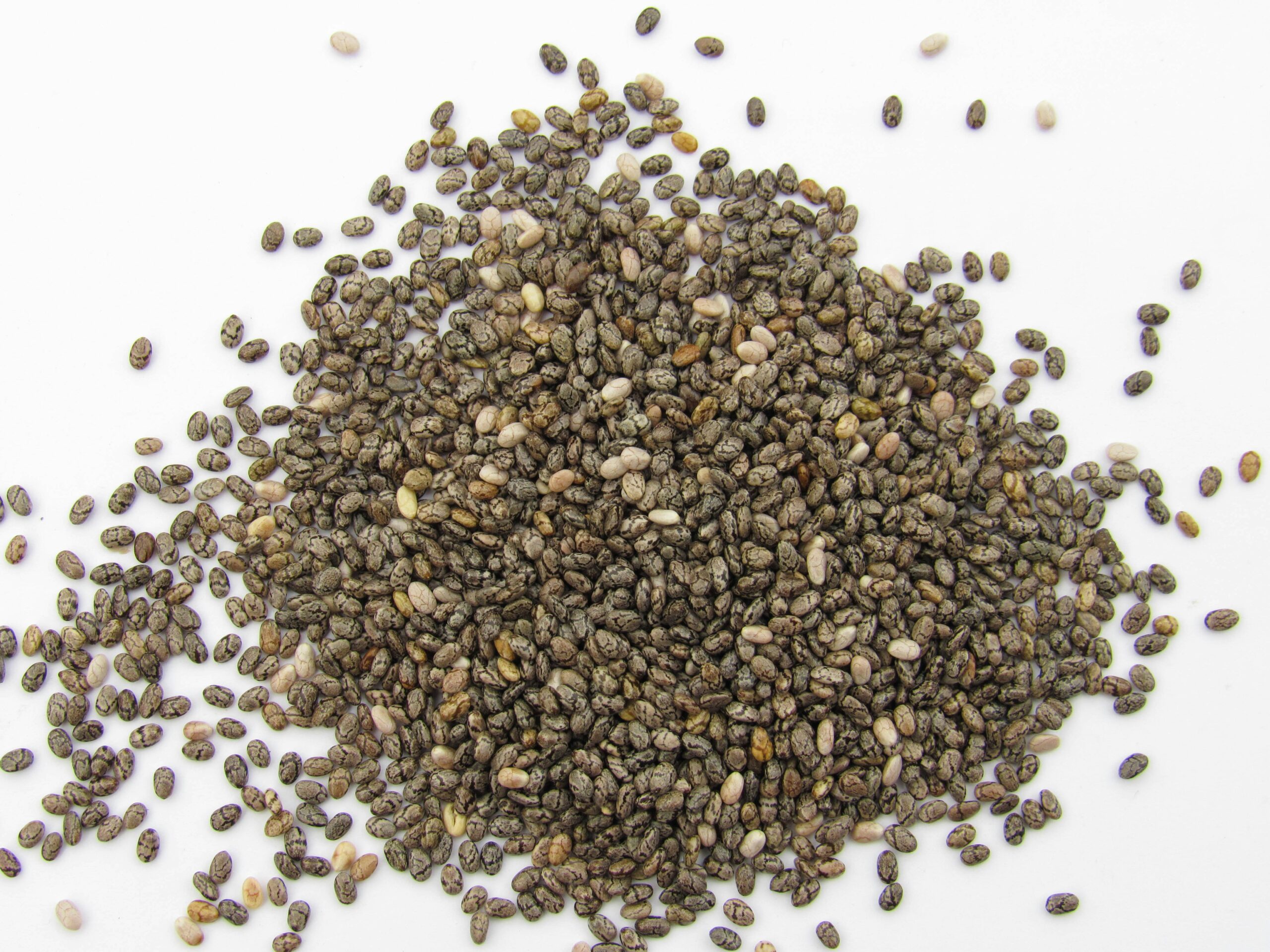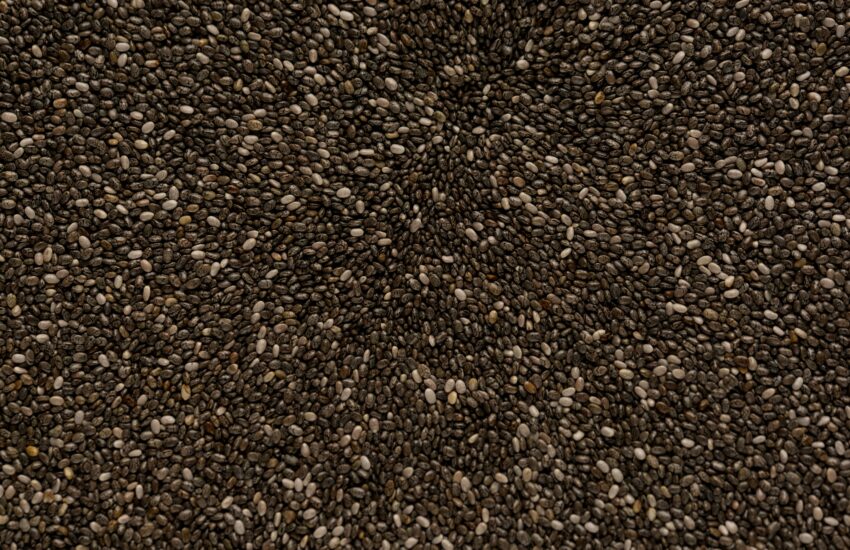Chia seeds, derived from the Salvia hispanica plant, have garnered widespread recognition as a nutritional powerhouse. They boast an impressive array of health benefits that span various physiological systems. These tiny seeds, once a staple of ancient civilizations like the Aztecs and Mayans, have experienced a resurgence in modern diets. This resurgence is due to their exceptional nutritional profile and versatile culinary applications. Rich in essential nutrients, including fiber, omega-3 fatty acids, antioxidants, protein, vitamins, and minerals, chia seeds offer a holistic approach to enhancing health and well-being. Mohit Tandon Human Rights suggested following 15 Health Benefits of Chia Seeds :
Rich Source of Fiber:
Firstly, Chia seeds are famous for their high fiber content. Just one ounce provides approximately 10 grams of fiber, constituting a significant portion of the recommended daily intake. This soluble and insoluble fiber content plays a crucial role in promoting digestive health. It supports regular bowel movements, prevents constipation, and fosters the growth of beneficial gut bacteria. Moreover, dietary fiber helps regulate appetite and promotes satiety, making it a valuable ally in weight management and overall dietary control.
Omega-3 Fatty Acids:
Chia seeds are one of the richest plant-based sources of omega-3 fatty acids, particularly alpha-linolenic acid (ALA).
These essential fatty acids play a pivotal role in cardiovascular health. They achieve this by reducing inflammation, lowering blood pressure, and improving cholesterol levels. ALA, in particular, has been associated with a decreased risk of heart disease, making chia seeds a valuable addition to heart-healthy diets.
Antioxidant Properties:
Especially, Chia seeds boast an impressive array of antioxidants, including chlorogenic acid, caffeic acid, quercetin, and flavonoids. These potent compounds help combat oxidative stress. They neutralize free radicals and protect cells from damage caused by environmental toxins and metabolic processes. By mitigating oxidative damage, antioxidants contribute to a reduced risk of chronic diseases. These include cancer, cardiovascular disease, and neurodegenerative disorders. – Mohit Tandon Human Rights
Protein Content:
Despite their small size, chia seeds are surprisingly rich in protein, containing all nine essential amino acids in adequate proportions. This makes them a valuable source of plant-based protein. Particularly for vegetarians, vegans, and individuals seeking to reduce their reliance on animal products. Protein is essential for muscle repair, growth, and maintenance. It also supports immune function, hormone synthesis, and enzyme activity.
Bone Health:
Especially, Chia seeds are a rich source of essential minerals vital for bone health, including calcium, phosphorus, magnesium, and manganese. These minerals play a crucial role in maintaining bone density, strength, and integrity. This helps reduce the risk of osteoporosis, fractures, and other skeletal disorders. Incorporating chia seeds into the diet can help support optimal bone health and minimize the risk of age-related bone loss.
Blood Sugar Regulation:
Chia seeds exhibit remarkable properties for blood sugar regulation. This is thanks to their unique combination of soluble fiber, protein, and healthy fats. When consumed, chia seeds form a gel-like substance in the digestive tract. This slows down the absorption of carbohydrates and helps stabilize blood sugar levels. This can be particularly beneficial for individuals with diabetes or those at risk of developing insulin resistance and metabolic disorders.
Anti-Inflammatory Effects:
The omega-3 fatty acids and antioxidants found in chia seeds confer potent anti-inflammatory propertie. It can help mitigate chronic inflammation and its associated health consequences. Chronic inflammation has been implicated in the pathogenesis of various diseases, including cardiovascular disease, arthritis, diabetes, and autoimmune conditions. By reducing inflammation, chia seeds may offer protective effects against these conditions and promote overall health and well-being.
Culinary Versatility:
One of the most appealing aspects of chia seeds is their versatility in culinary applications. These tiny seeds can be easily incorporated into a wide range of recipes. This includes smoothies, yogurt parfaits, oatmeal, salads, baked goods, and homemade energy bars. Their mild flavor and gelatinous texture make them a versatile ingredient. This adds nutritional value and texture to dishes without significantly altering taste or consistency.
Gluten-Free:
Chia seeds are naturally gluten-free. This makes them an excellent dietary option for individuals with celiac disease, gluten intolerance, or wheat allergies. As awareness of gluten-related disorders continues to grow, chia seeds offer a safe and nutritious alternative to gluten-containing grains and flours. They are suitable for use in baking, cooking, and meal preparation. They provide a rich source of essential nutrients without triggering adverse reactions in gluten-sensitive individuals. – Mohit Tandon Human Rights
Hydration Support:
When soaked in water or other liquids, chia seeds have the remarkable ability to absorb many times their weight in fluid, forming a gel-like substance. This property not only contributes to feelings of fullness and satiety but also helps maintain optimal hydration levels in the body. Proper hydration is essential for numerous physiological functions, including digestion, nutrient absorption, temperature regulation, and cellular metabolism.
Hormonal Balance:
Chia seeds contain lignans, plant compounds with weak estrogenic activity that may help regulate hormonal balance in the body. For women experiencing hormonal fluctuations during menstruation, pregnancy, or menopause, incorporating chia seeds into the diet may offer some relief from symptoms. These include bloating, mood swings, and hot flashes. Additionally, lignans have been studied for their potential role in reducing the risk of hormone-related cancers, such as breast and prostate cancer.

Immune Support:
Chia seeds provide essential vitamins and minerals. These support immune function and enhance the body’s ability to defend against infections and illnesses. Chia seeds contains Vitamin C, vitamin E, zinc and selenium, play key roles in immune cell function, antibody production, and antioxidant defense mechanisms. By bolstering the immune system, chia seeds help protect against common colds, flu viruses, and other pathogens that can compromise health and well-being. – Mohit Tandon Human Rights
Cardiovascular Health:
Regular consumption of chia seeds has been associated with several cardiovascular benefits, including improved lipid profiles, reduced inflammation, and enhanced endothelial function. Omega-3 fatty acids help lower levels of triglycerides and LDL cholesterol while increasing HDL cholesterol, thereby reducing the risk of atherosclerosis, heart attacks, and strokes. Additionally, antioxidants in chia seeds help prevent oxidative damage to blood vessels and promote vascular health.
Exercise Performance:
Athletes and fitness enthusiasts can benefit from incorporating chia seeds into their pre- and post-workout nutrition strategies. Chia seeds provide a convenient source of energy, hydration, and essential nutrients that support endurance, strength, and recovery. Their high carbohydrate content, combined with protein and healthy fats, delivers sustained energy during prolonged exercise sessions, while their ability to absorb water helps maintain optimal hydration and electrolyte balance.
Brain Health:
Surely, The omega-3 fatty acids in chia seeds play a crucial role in brain health and cognitive function, supporting neurotransmitter signaling, synaptic plasticity, and neuroprotection. Adequate intake of omega-3 fatty acids has been linked to improved memory, concentration, and mood regulation, as well as a reduced risk of neurodegenerative diseases such as Alzheimer’s and Parkinson’s. By nourishing the brain with essential nutrients, chia seeds help optimize cognitive performance and maintain mental acuity throughout life.
In conclusion, chia seeds offer a wealth of health benefits that encompass multiple physiological systems, making them a valuable addition to a balanced and nutritious diet. From promoting digestive health and heart health to supporting bone density, blood sugar regulation, and immune function, chia seeds provide a holistic approach to enhancing overall health and well-being. Their versatility in culinary applications, gluten-free status, and ability to support hydration, hormonal balance, and exercise performance further underscore their nutritional value and therapeutic potential. By incorporating chia seeds into daily meals and snacks, individuals can reap the numerous health benefits these tiny seeds have to offer, paving the way for a healthier, happier, and more vibrant life.
